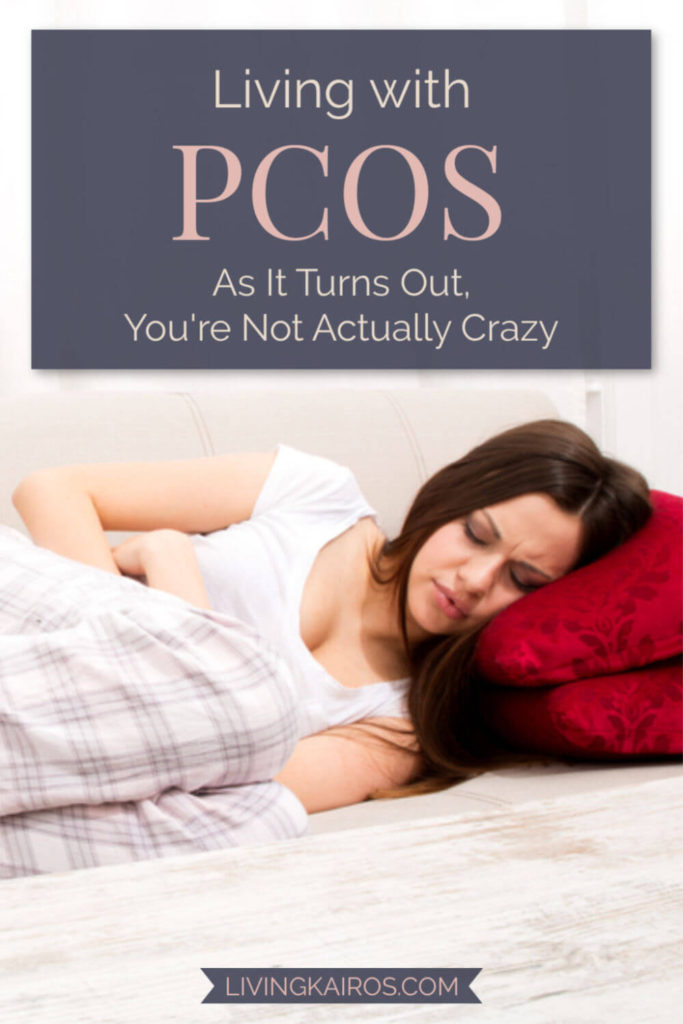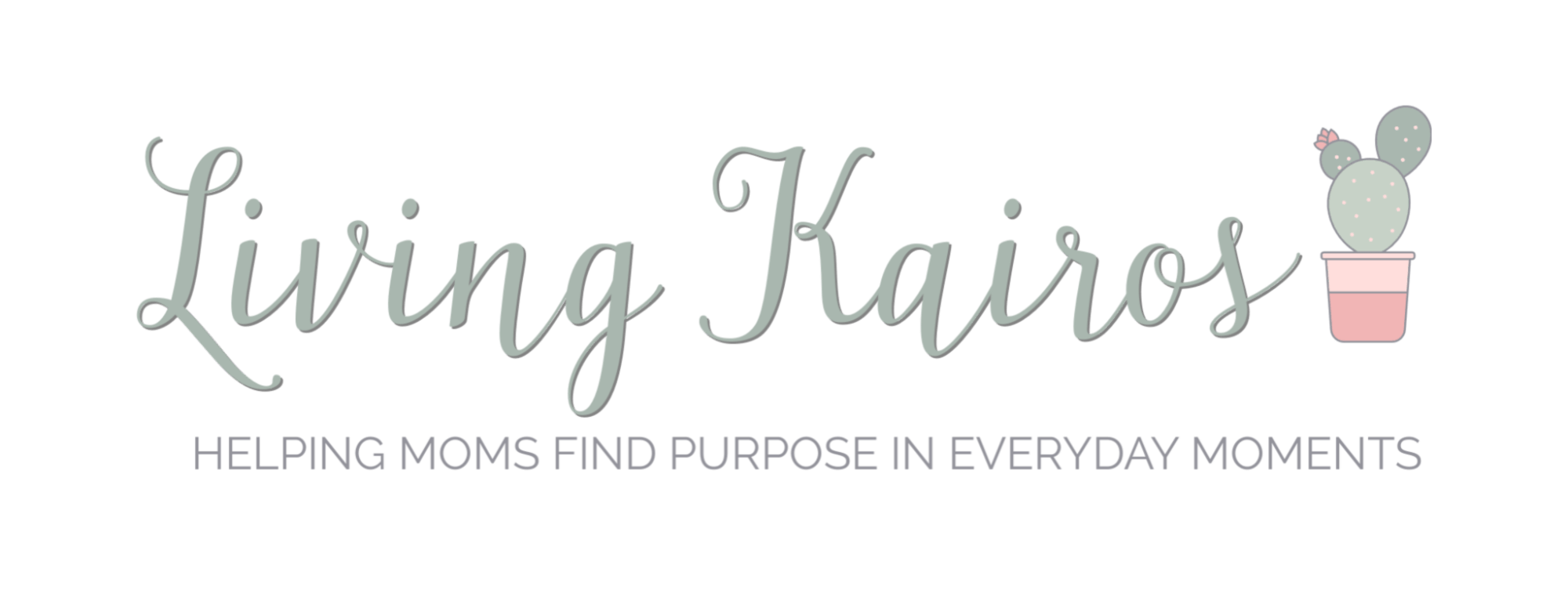Polycystic Ovarian Syndrome (PCOS) is no joke. Though it’s extremely common, many women don’t even know they have it. They experience a range of symptoms that can be attributed to other things and never know the truth. I was one of those women who never knew quite what was wrong until I received the diagnosis that I was living with PCOS.
***Disclaimer: I am not a medical professional and any information provided in this post should not be taken as medical advice. If you think you have PCOS, talk to your doctor before attempting to treat your symptoms.***

My story
I was diagnosed with PCOS at the age of twenty-seven, when my husband and I started trying to get pregnant for the first time. What followed was a heartbreaking struggle with infertility, but today we are just talking about what living with PCOS looks like.
Problems as a preteen
From the time I hit puberty, I never experienced regular cycles. There were times I would go six months without a period and then have a couple and then nothing for a few more months. My mom took me to my pediatrician who said that was normal in teenage girls and that it should improve over time.
One day when I was fourteen or fifteen, I experienced an intense pain on the right side of my abdomen. I have a high pain tolerance, but that pain took me down. My mom took me to the emergency room because they thought I might have appendicitis.
Thankfully, it wasn’t appendicitis, but after hours in the ER, lots of tests, and an ultrasound, the doctor stated I had a cyst the size of a walnut on my right ovary. He said ovarian cysts are common, and there wasn’t really anything to do except to hope it would go away on it’s own. It did, but I ended up having a few more painful cysts over the years and just learned to live with them.
Birth control? Excuse me?
As an adult, I continued to have irregular cycles, and I brought it up to my doctors on several occasions. Their response was always to try to put me on birth control to regulate me. I resisted because I was single and didn’t have a need for birth control until I married. However, as my cycles grew more irregular and more painful, I finally decided to go ahead and start birth control.
It took me over a year of taking birth control pills to finally have regular cycles. Finally, I didn’t have to wonder when I would get my period next. At last my PMS symptoms were bearable, and I went along my merry way.
Trying to get pregnant
My husband and I decided we were ready to start trying for a baby after three years of marriage. I stopped taking the pill and happily waited to get pregnant. After one regular cycle, it was like all hell broke loose.
I anticipated that my body would need some time to adjust after getting off the pill, but never in my wildest dreams did I imagine the havoc it would wreck on my system. After numerous visits to various doctors (where I was told I it was likely I would be unable to conceive naturally) and a fertility specialist, they finally diagnosed me with PCOS, among a couple other things.
What makes me angry is the fact that I’ve been living with PCOS my entire life, and it took over fifteen years for someone to finally diagnose me. It’s one of those things that happens before you are born and there’s nothing you can do to prevent it. But all the doctors I saw ultimately dismissed my symptoms. No one took the time to put all the pieces together to form an accurate diagnosis. Their band-aid fix was always to put me on birth control.
Symptoms of PCOS
Because many symptoms of PCOS are easily attributed to other issues, it is often hard to detect. At its most basic level, PCOS is a hormonal imbalance. According to WebMD, there are three main things that can get off you off track with PCOS. You have too many androgens (“male” hormones that all women have as well)
- You have too many androgens (“male” hormones that all women have as well)
- Your body produces too much insulin
- Your body doesn’t produce enough progesterone
These hormonal imbalances can result in a bunch of rough symptoms.
Irregular periods
Because of the lack of progesterone, many women with PCOS have irregular cycles. This means that you don’t ovulate every month, which results in not having a period every month. Because of this, many women living with PCOS suffer infertility.
Ovarian cysts
Though PCOS stands for Polycystic Ovarian Syndrome, not all women experience ovarian cysts. I suffered with several painful cysts over the years, along with some smaller ones here and there. Some women experience cysts that grow to the size of grapefruits and have to be surgically removed, but from what I understand, that’s not as common.
Weight gain/inability to lose weight
Another awful symptom women living with PCOS experience is weight gain or the inability to lose wight. This is due to the excess insulin in your body. Because you make too much, any extra sugar your body takes in makes it hard to lose weight.
I was eating fairly healthy, but I could not for the life of me lose weight. When I switched to a low-carb lifestyle, I started losing weight like crazy because my body needs fewer carbs; I just didn’t know it until then.
Excess facial hair/male-pattern baldness
This symptom is super embarrassing. From my teenage years, I’ve had these little hairs that grow on my chin and above my upper lip. I thought it was because I’m Hispanic and we tend to have more hair.
But come to find out, it’s because of the extra androgens in my system. Androgens are “male” hormones that all women possess, but my body just makes too many. I haven’t experience male-pattern baldness, but other women living with PCOS have.
There are other symptoms of PCOS, but these are the main ones to watch out for.
Treatment
Unfortunately, there is no cure for PCOS. This devastated me because we wanted so badly to have kids. Thankfully though, there are ways to treat the symptoms.
What worked for me
I understand PCOS is treatable with hormone therapy, but my doctor suggested I try a low-carb lifestyle first. It’s really hard, especially if you love carbs like I do, but I felt so much better when I started reducing my carb intake. It was amazing how quickly I dropped weight (under my doctor’s supervision).
The other symptoms decreased as well with a low-carb lifestyle. I still have those annoying chin hairs, but they aren’t as bad as they were. Within a few months of going low-carb, my cycles regulated, which was huge for me. I still don’t have the “normal” twenty-eight day cycle that most women have, but I’m regular for me (about thirty-six days).
Living with PCOS is not the end of the world
Contrary to what you may feel (and definitely what I felt when I heard my diagnosis), living with PCOS is not the end of the world. The important thing is making yourself heard. I went years without knowing what was wrong with me because many of the doctors I talked to didn’t take the time to listen to my problems. If I would have known sooner, I could have been working to manage my symptoms better. You have to be your own advocate for your health and speak up if something isn’t right.
Women living with PCOS can lead normal lives while managing their symptoms. It’s even possible to get pregnant. If you are one of the many women who deal with this issue, I want to encourage you to stay strong.
This could be your kairos moment. Even though you feel ill-equipped to handle it, God set you aside for such a time as this and He will give you the strength to endure and even thrive in it. Make sure to surrender your diagnosis to the Lord daily and lean on Him. Surround yourself with people who will support you and help you through this journey. And perhaps God will use your story to bless and encourage someone else.
If you think you’re living with PCOS, don’t be afraid to speak up! It’s better to know what the problem is so you can work on it instead of it blindsiding you when you are ready to have a family. And if you’ve already received a diagnosis, don’t lose hope. Though there is no cure, there are things you can do to manage your symptoms and live a normal, happy life. Embrace your kairos moment and use your story to bless others.



How did they finally diagnose you with pcos?. I got my period every month like clock work, but one month in my early 30s got a full blown period 2 times in one month thats when they discovered a 9 cm cyst on my ovary. The funny thing is the cyst wasnt painful except for if i walked for too long. I had to have it surgically removed after 6 months. My doc didnt mention I had pcos and said everything else looked fine. I did have high estrogen and elevated cholesterol no one told me about. Now I’m wondering if the docs just didnt bother to tell me i had pcos!! I am going to try low carb dieting, I can afford to lose a good 10 to 15 pounds lol
Hi Gerri! Thank you for commenting!
I was finally diagnosed when my fertility specialist took a good look at all my symptoms combined. As I stated in the post, each symptom on it’s own can be attributed to any number of ailments, but the combination of all of them is what led him to that diagnosis. I’m so sorry you had to have your cyst removed! Surgery is no joke, but I’m glad they were able to get it. I would definitely talk to your doctor about possibly having PCOS so you can begin treating your symptoms. Make sure to be very detailed about everything you’re experiencing so they don’t just write it off as something else that is less major. And *please* make sure to talk with your doctor before starting a low-carb diet to make sure that it’s right for you. I hope you get some answers!
Thank you for the response. I had 3 fertility specialists that did hormone panels and performed the surgery. They DID mention wanting to put me on birth control after surgery for fear I would skip a period after my hormones settled from not having a cyst. That’s why i was concerned that maybe they didn’t tell me I had pcos but I said no and I never missed a period after. They said usually if you’re predisposed to cysts you show symptoms earlier than early 30’s so they counted it as a random fluke on my health chart. I think diet and hormone regulation by sleeping and eating well is the key to fertility health. My fertility specialist said sugar is death to fertility. Thank you again